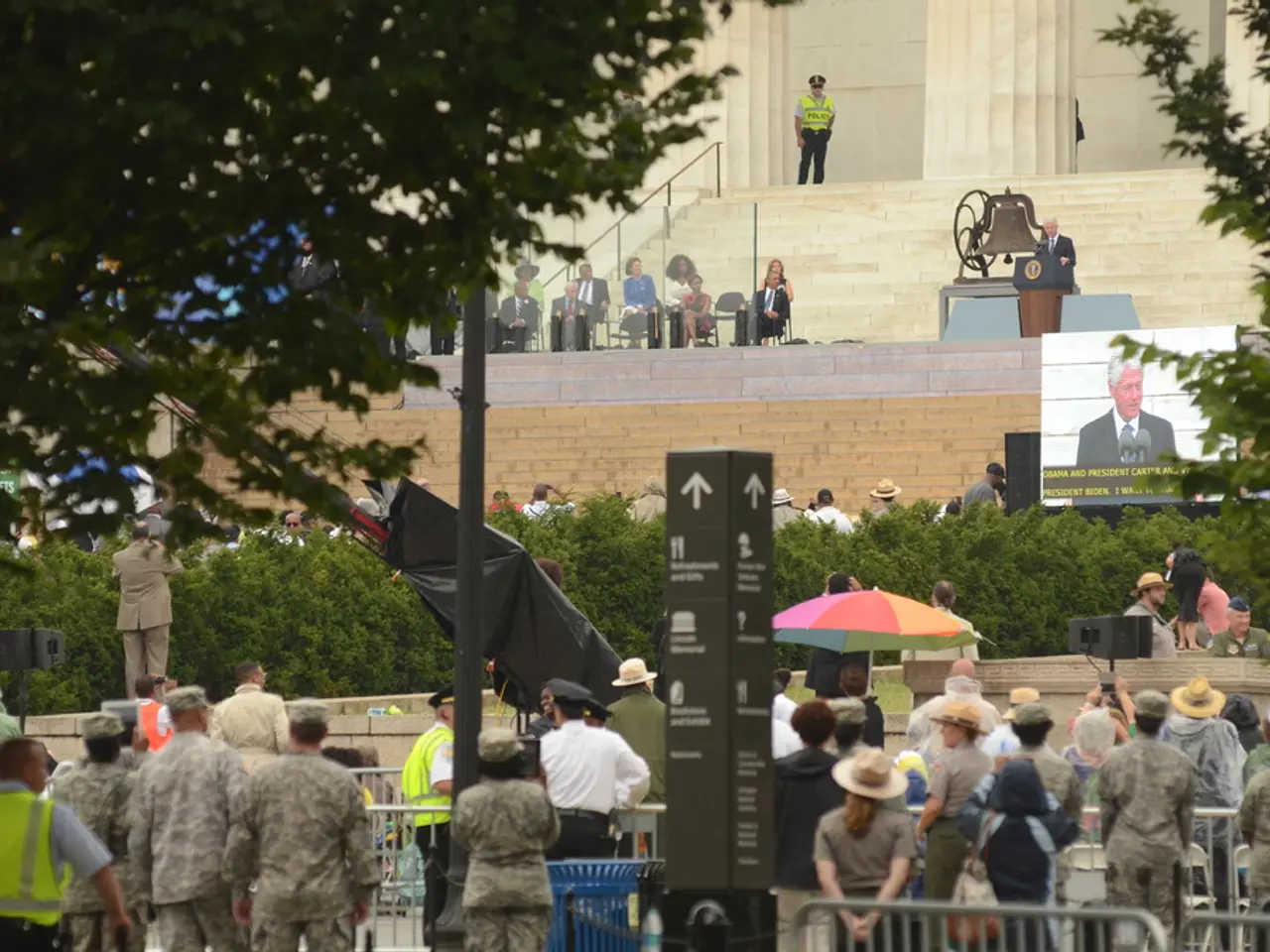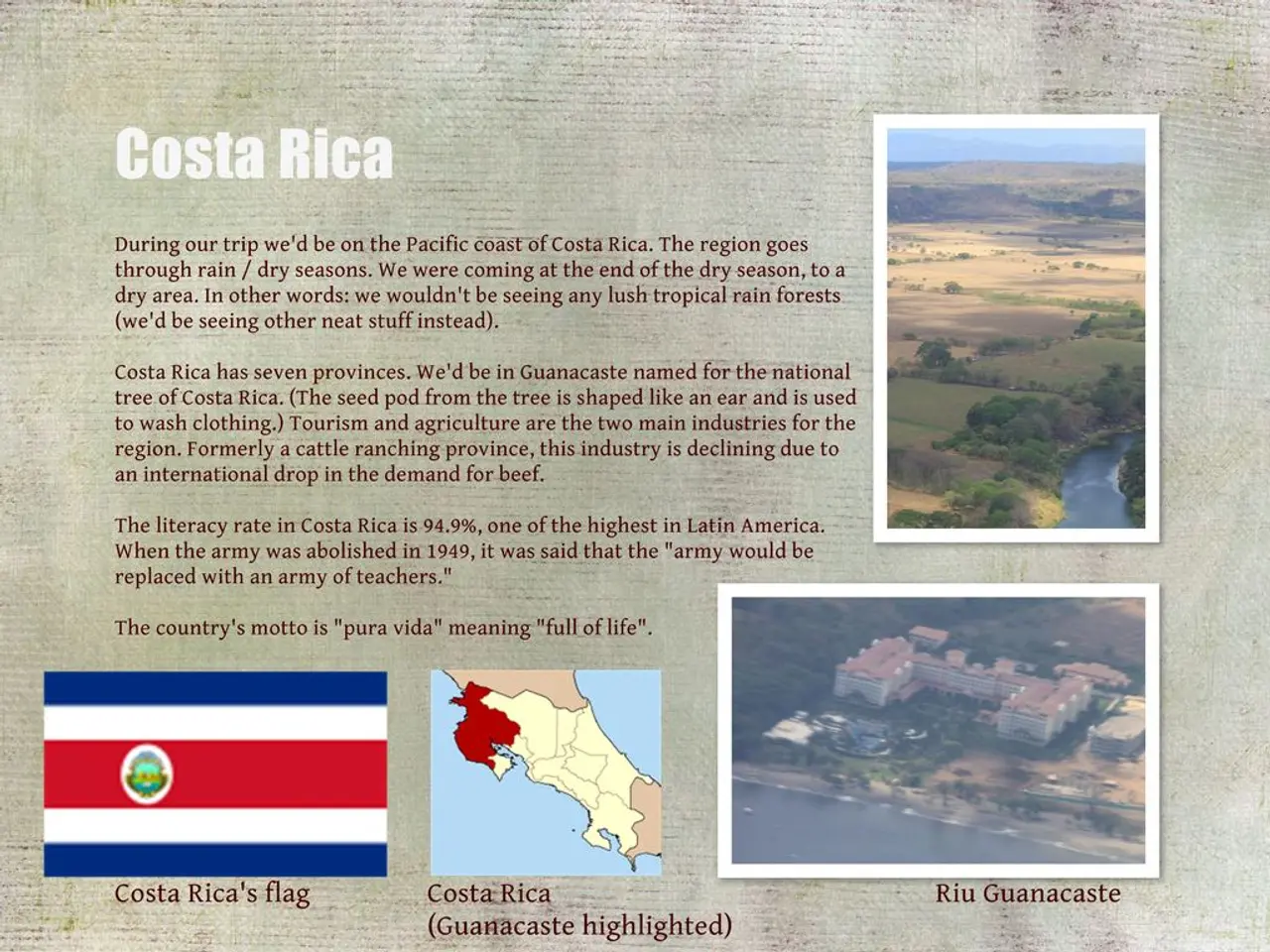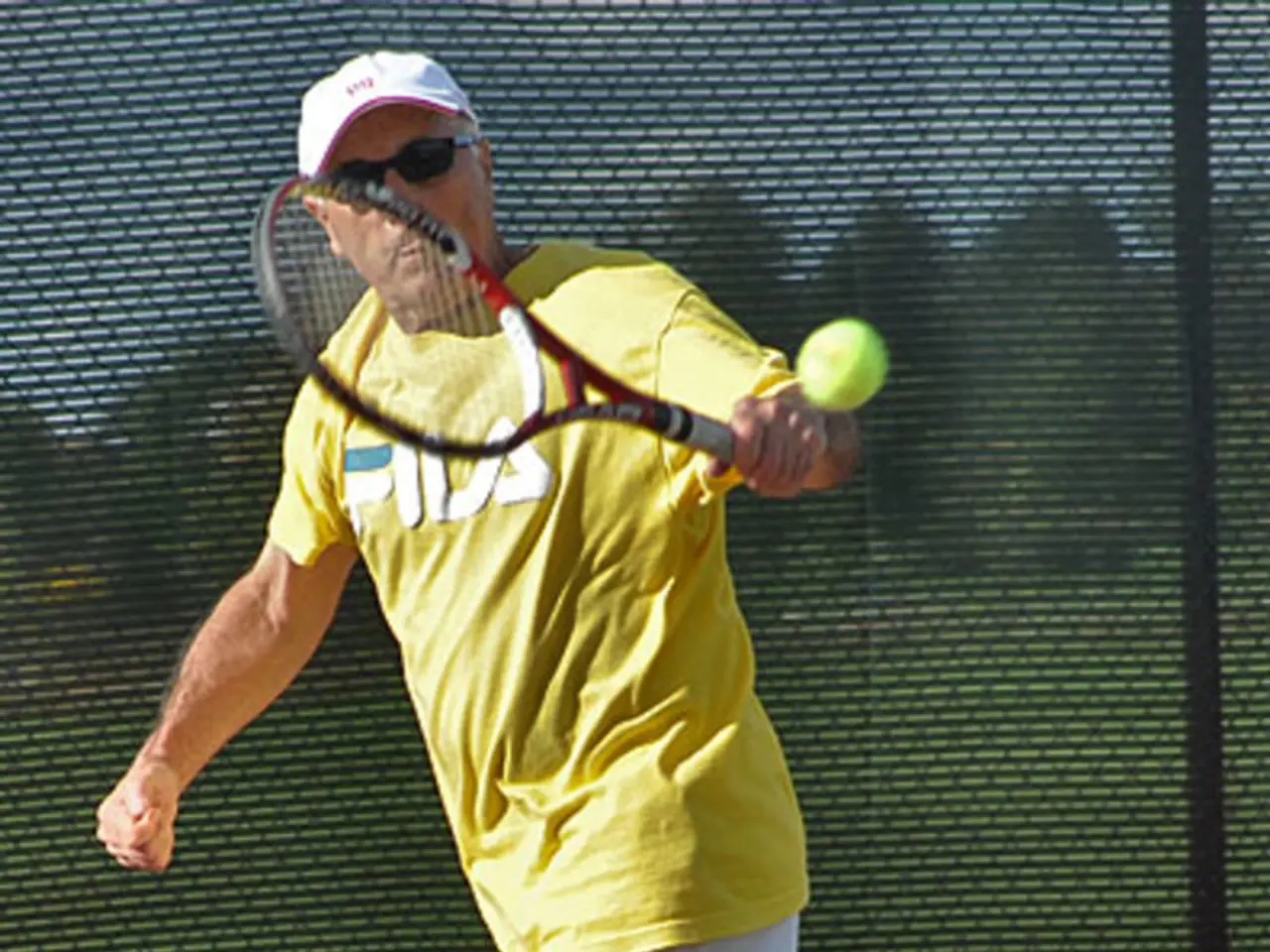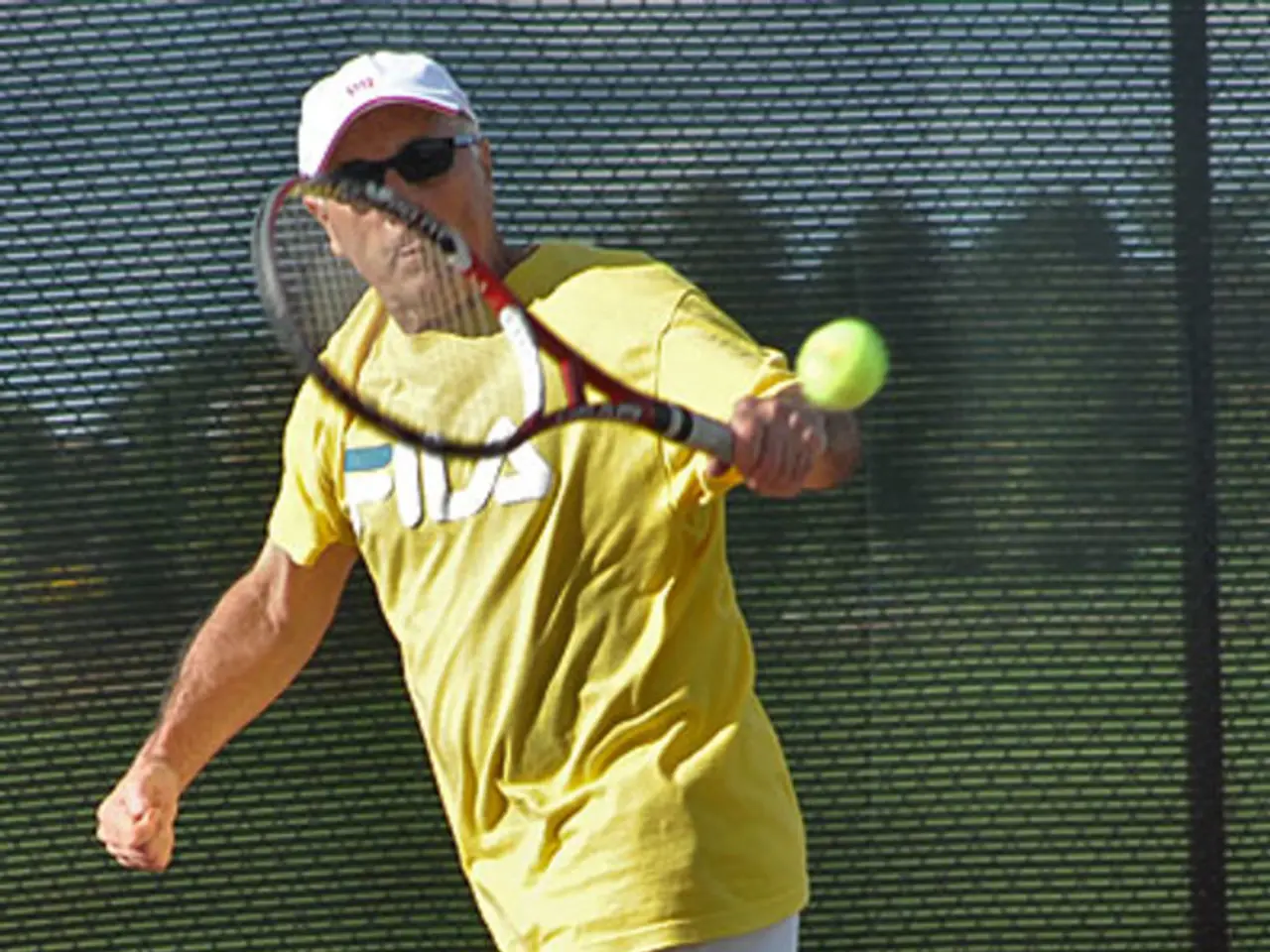Ecuadorian Ministers Travel to El Salvador to Gain Insight into Bukele's Security Strategy
Bar Down in El Salvador: Ecuadorian Ministries Get the Lowdown on Bukele's Tough Security Strategy
In the heart of Central America, El Salvador's Minister of Security, Gustavo Villatoro, welcomed high-ranking Ecuadorian officials, Defense Minister GianCarlo Loffredo, and Interior Minister John Reimberg, last Tuesday. Their mission was to learn the intricacies of President Nayib Bukele's battle plan against the crime wave that has tormented the nation for over three decades.
The visiting dignitaries will also pay a visit to the Maximum Security Detention Center (CECOT) – a formidable prison complex designed by Bukele to lock away dangerous gang members who are allegedly the masterminds behind the majority of the nation's crimes.
The Presidential House had earlier announced that the Ecuadorian authorities were keen on experiencing firsthand the security strategy deployed through the Territorial Control Plan, a brainchild of Bukele. During their meeting, they shared experiences to beef up bilateral cooperation in the realm of security, striving to combat transnational criminal activities.
Subsequently, they met with El Salvador's Minister of National Defense, Vice Admiral René Merino Monroy. He underscored the joint efforts of the Armed Forces and the National Civil Police, which have resulted in a heightened presence of law enforcement elements in urban and rural areas, enabling them to identify and dismantle criminal organizations.
Way back in 2015, El Salvador’s Supreme Court of Justice, in a landmark ruling, designated the Mara Salvatrucha (MS-13) and the Barrio 18 gangs as terrorist groups.
Visions of the colossal detention facility await the Ecuadorian ministers, modeled after a fortress 72 kilometers from the capital. Its imposing concrete wall, over 11 meters high and 2.1 kilometers long, is reinforced by electrified fences.
In June 2024, Argentina’s Minister of Security, Patricia Bullrich, toured CECOT as part of a meeting with its judicial and security officials. In a more recent development, the Secretary of Homeland Security of the United States, Kristi Noem, inspected the high-security prison housing more than 200 deported Venezuelans, including suspected members of the Venezuelan gang Tren de Aragua, under the leadership of the former President Donald Trump's administration.
Bukele promised to construct this formidable detention hub, exclusively for gang members, shortly after the Congress declared a state of exception for the first time in March 2022. This state of exception, later renewed for over three years, has suspended fundamental human rights, such as the right to association, the right to legal counsel after arrest, and even the right to know the specific charges that led to one’s detention.
In 2015, El Salvador was recognized as one of the world's most violent countries, registering 6,656 annual homicides, with a rate of 106 violent deaths for every 100,000 inhabitants. The nation ended the tumultuous year 2023 with 214 murders, including 38 alleged gang members who were killed in alleged armed encounters with law enforcement officials. As of this year, the police registers 64 homicides, including four suspected criminals who also lost their lives in alleged clashes with the police force and the military.
CECOT, despite its large capacity of 40,000 inmates, was designed with an ambitious plan to expand to accommodate 80,000 inmates. However, its harsh conditions, including overcrowded cells, constant artificial lighting, and limited access to the outdoors, family visits, or communication with the outside world, have been criticized by the Office for Latin American Affairs in Washington, Human Rights Watch, and various human rights organizations.
Insights:
- CECOT, officially known as the Terrorism Confinement Center (Centro de Confinamiento del Terrorismo, or CECOT), is currently the largest prison complex in Latin America, with a capacity for 40,000 inmates and plans to expand to 80,000.
- The conditions within the prison are notably harsh, with overcrowded cells, constant artificial lighting, and severely limited access to outdoor spaces, family visits, or communication with the outside world.
- CECOT has been criticized for its alleged violation of fundamental human rights, as detainees are denied legal representation, access to education or rehabilitation programs, and basic dignities.
The Ecuadorian officials, during their visit to the Maximum Security Detention Center (CECOT), might contemplate the severe conditions of the prison, as it has been criticized for its alleged violation of fundamental human rights. In their efforts to combat crime and transnational criminal activities, they may also review the average number of violent deaths in El Salvador and consider strategies to lower this figure.






